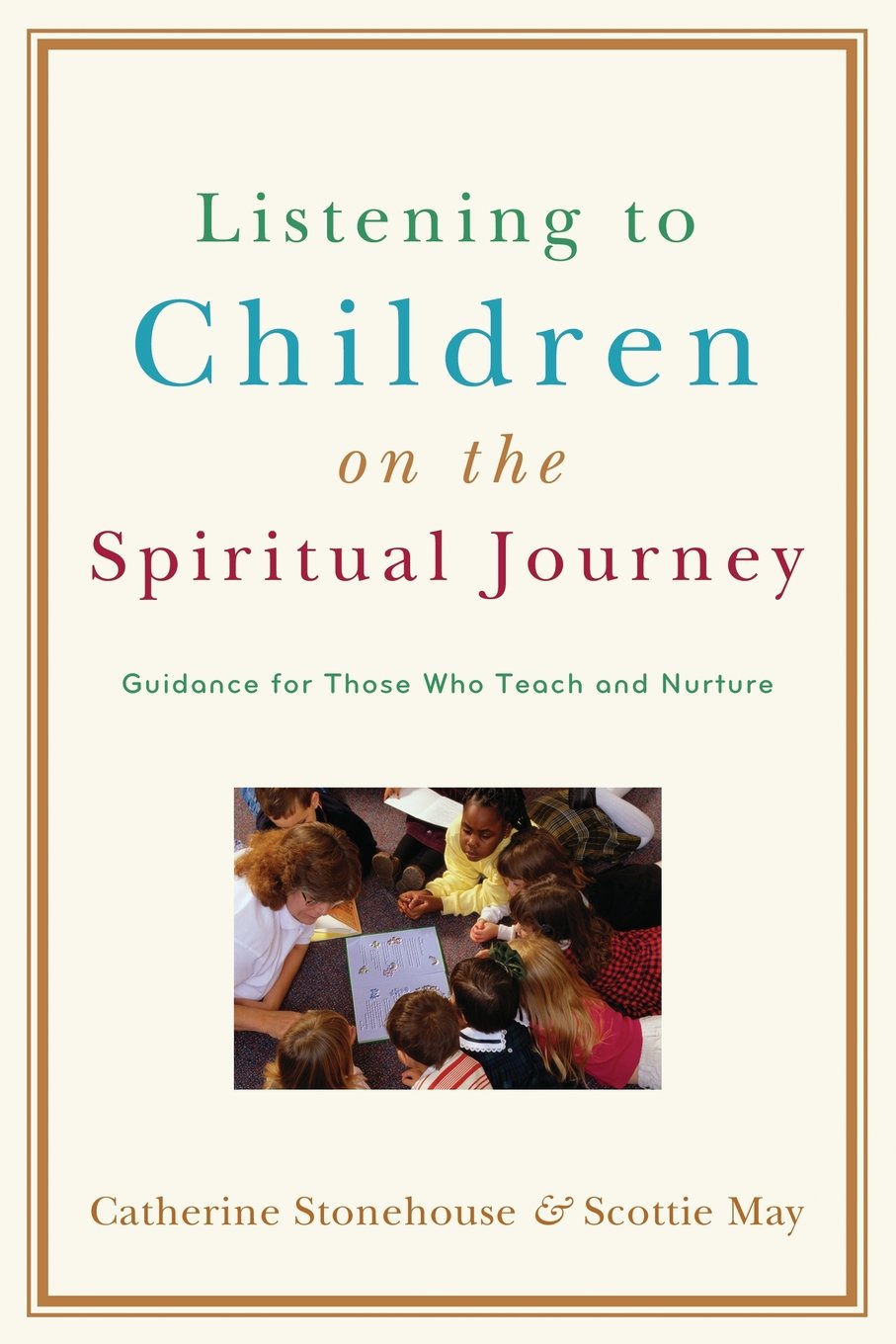
Book Review
If you have not yet read Listening to Children on the Spiritual Journey by Catherine Stonehouse and Scottie May then I encourage you to do so as soon as possible! This book emerged from research studies they conducted over a number of years. From their own words,
“We did not develop an outline of what we thought parents and children’s ministry leaders ought to know to minister effectively and then use what the children said to prove our points. Instead we listened to the children, trying to discern insights from their conversations with us, and built the book around those themes.”
The book is written based on 2 major research projects conducted over a 7 year period of time. Appendix A in the book gives a detailed report of the research design, method and findings. Each chapter of the book begins with the reader being able to ‘listen’ to the insights and words of the children themselves and then read the reflection of the authours.
While each chapter contains significant insights and reflections, for the sake of brevity, I am going to focus this review on the final chapter, chapter 8: The Church Partnering with Parents. As the authours listened to the children, they began to wonder about questions such as, “How many parents are equipped for the challenges of the hard theological questions that children can raise?” and “Who is there to support and nurture them in the wonderful privilege but demanding responsibility of parenting, of nurturing the spiritual life of their child?” and “How can the church provide the nurture that families need?” With so many of us pastors and leaders in children’s ministry affirming that parents are the primary faith influencers and seeking ways to equip and support parents, along with leading effective children’s ministry, I suggest that if you don’t read anything else in this book, you must read this chapter. Now, it is important to note that though the authours do offer some “how to” ideas, they do not present a full plan for churches to implement. Instead, they identify important elements for such a plan. I was particularly struck by the statement, “Often when church leaders make plans for equipping parents they think in terms of workshops or courses focused on parenting challenges and skills.” (p. 124) While these can be helpful, the authours discovered, by listening to children that there is something more that’s needed. As I reflect on this chapter I wonder if a better question might be “How do we provide an environment in which moms and dads come to know and grow in their relationship with Jesus?” The authours state, “When parents are unsure of their own relationship with God or have never discovered the joy of a growing, life changing relationship with Jesus, the nurture of their children’s faith will be hindered.” (p. 125) How do you react to that statement? The chapters continues with several elements and suggestions for considering how churches might support and equip parents both in their own spiritual development and so that they might nurture the spiritual life of their children. Appendix B is a list of resources and ideas.
This book is a must read! Why? I close with these words from the authours,
“…we have become increasingly aware of the major changes going on in society and in the church. How should we respond to those changes? What do children need if they are to thrive as children of God, much loved followers of Jesus? We believe that finding answers to those crucial questions requires that we hear the voices of the children and let them help us understand the nourishment and companionship they desire on the faith journey…we invite you to join us in listening to children, learning from them, enhancing our listening and learning skills, and evaluating our ministries in the light of what we discover.” (p. 23)

+ There are no comments
Add yours